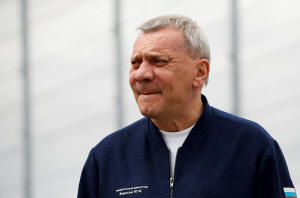|
The agency confirmed plans to launch an initial scientific and
energy module in 2027. It said three more modules would be added
by 2030 and a further two between 2031 and 2033.
Russia has until now partnered with the United States and other
countries on the International Space Station, one of the few
areas where it still collaborates closely with the U.S. given
the dire state of relations since its invasion of Ukraine.
With the ISS approaching the end of its operational life, Moscow
announced plans in 2022 to pull out of the project and build its
own station. It initially said it would quit the ISS after 2024,
but told its partners last year it would extend its
participation until 2028.
Apart from the design and manufacture of the modules, Roscomos
said the schedule approved by Borisov includes flight-testing a
new-generation crewed spacecraft and building rockets and
ground-based infrastructure.
The new station will enable Russia to "solve problems of
scientific and technological development, national economy and
national security that are not available on the Russian segment
of the ISS due to technological limitations and the terms of
international agreements", it said.
Russia has prided itself on its space program since the Cold
War, when Soviet cosmonaut Yuri Gagarin became the first person
to travel into space in 1961. But it suffered a major setback
last year with the failure of its first lunar mission in 47
years, when its uncrewed spacecraft spun out of control and
smashed into the surface of the moon.
(Reporting by Mark Trevelyan, Editing by Timothy Heritage)
[© 2024 Thomson Reuters. All
rights reserved.]
Copyright 2022 Reuters. All rights reserved. This material may
not be published, broadcast, rewritten or redistributed.
Thompson Reuters is solely responsible for this content.

|
|





